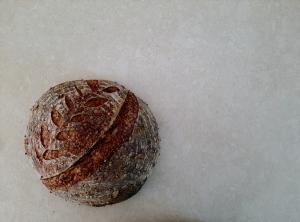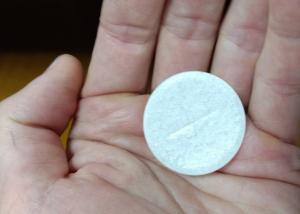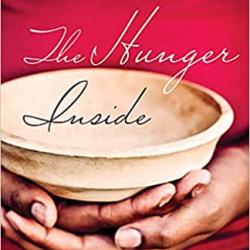
Ask a bunch of Protestants what Holy Communion means, and they’re likely to respond with something about “remembering what Jesus has done for us.”
It’s not a bad answer. After all, in Luke’s and Paul’s account of the Last Supper, Jesus instructs the disciples to “do this in remembrance of me” (Luke 22:19; 1 Corinthians 11:24). But remembrance strikes only one note in the meaning of communion. There’s more—not least the way that communion expresses and cultivates thanksgiving. Communion is Eucharist.
For a lot of our Protestant/Evangelical/Anabaptist churches, “Eucharist” is a strange word. Many of us either don’t know what it means or view it with suspicion. (That sounds Catholic.) But when it comes to understanding the meaning of communion, “Eucharist” has at least as venerable a pedigree as remembrance.
The word Eucharist comes from the Greek eucharisteo which means “give thanks.” It’s one of the verbs used by the gospels to describe Jesus’ action at the table. Jesus “gives thanks” (eucharisteo) over the cup in Matthew, Mark, and Luke, as well as over the bread in Luke. In 1 Corinthians 11:23, Paul hands on how the Lord Jesus “had given thanks” over the bread he broke it and gave it and said: “This is my body that is for you. Do this in remembrance of me” (1 Corinthians 11:23-24). Whereas “remembrance” comes up in only one of the gospels and Paul, eucharisteo is used in all four accounts, as well as in the stories of the feeding of the 5,000, a story that serves as metaphor and foreshadowing of the communion table. So why foreground remembrance? And if the bread and cup are consistently about eucharisteo-thanksgiving, why not focus on the dimension of thanksgiving? Why not call it “Eucharist?”
I think it’s time we restore the eucharistic meaning of Holy Communion. Let’s (um) make Communion Eucharist again.
Thanksgiving arises from a deep biblical well. It’s the todah thanksgiving sacrifices of the ancient Law and the hallel songs of thanksgiving (Leviticus 12:12-15; Psalms 113-118, 136). It’s the prophets anticipating the people returning to the land in thanksgiving (Jeremiah 17:26; Amos 4:5) and the catalogs of God’s mighty works. Psalm 107: “Let them thank the Lord for his steadfast love, for his wonderful works to humankind” (v.8). The Old Testament is shot through with thanksgiving.
In the New Testament, Paul constantly gives thanks. “Give thanks in all circumstances” he tells the Thessalonian church (1 Thes. 5:18). Do everything giving thanks to God (Colossians 3:17). “Everything is for your sake,” the apostle writes to the Corinthians, “so that grace, as it extends to more and more people, may increase thanksgiving, to the glory of God” (2 Corinthians 4:15).
While thanksgiving is written all over Paul’s letters, Jesus focuses thanksgiving at the table. It’s more than mere gratitude for all the nice stuff God has provided. Look at Jesus’ own experience: he gave thanks in the shadow of death, on the night when he was betrayed. By that time the next day, he would be dead. Thanksgiving for nice things and nice people is easy. Anybody can do it. But Eucharist-thanksgiving is an artform. It’s thanksgiving for God’s work in and among us, even in situations of profound trouble and pain and hardship. Yes, sometimes that means giving thanks in spite of the hard stuff. But more often it’s thanksgiving for God redeeming something—redeeming us—in and through trials.
Eucharist awakens an awareness of God in and among us. As we join Jesus at his table, we begin to discern that it matters less whether things are pleasant and going our way so much as how we are “growing in every way more and more like Christ” (Ephesians 4:15 NLT).
Jesus breaks the bread and pours the cup, his flesh and blood for the life of the world (John 6:51). Eucharist! Let us give thanks to the Lord our God.













